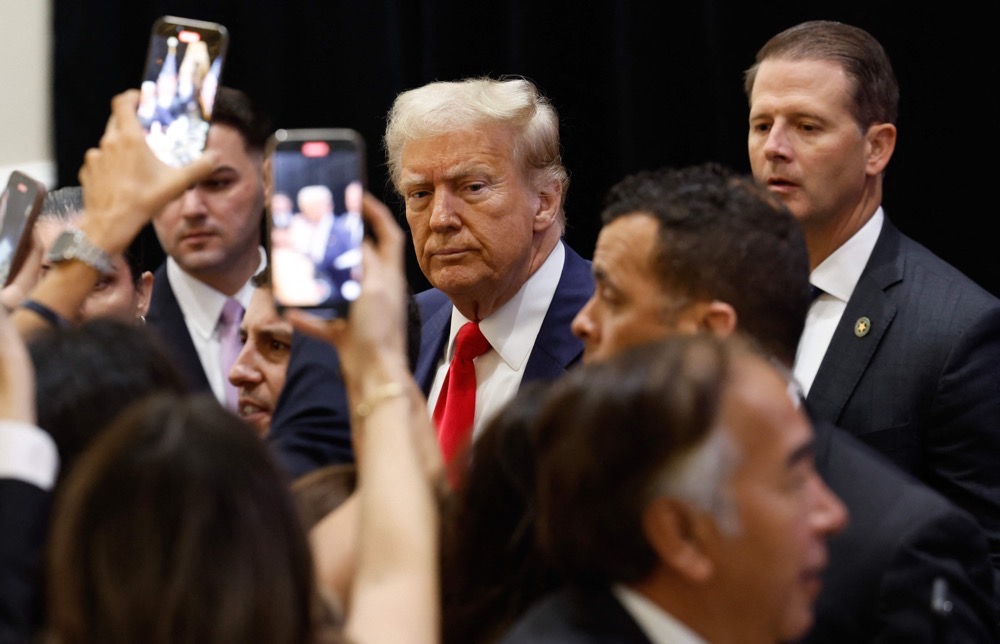LONDON: Despite pressing domestic concerns in the US — including the economy, the cost of living and racism — the plight of the Palestinians emerges as the biggest issue for Arab Americans of all generations, according to a survey conducted for Arab News by YouGov.
Asked to place six key issues in order of priority, 26 percent said the Israeli-Palestinian conflict is their chief concern.
However, the US economy and the cost of living are not far behind — each of these issues are the chief concerns for 19 percent of respondents.
They are followed by racism and discrimination (12 percent), the state of the jobs market (8 percent) and crime (6 percent).
Opinion
This section contains relevant reference points, placed in (Opinion field)
Day-to-day pressures of life might well play a part. Seventy-two percent of respondents are in employment — 59 percent full-time and 13 percent part-time — with 10 percent retired, 5 percent homemakers, and 4 percent describing themselves as unemployed.
Economics aside, however, the apparent disconnect in the poll between this dominant concern for Palestine, and the intention of 45 percent of respondents to vote for the clearly pro-Israel Donald Trump, is understandable, said Firas Maksad, a senior fellow at the Middle East Institute in Washington.
“Gaza and events in the Middle East clearly weigh very heavy on the mind of the average Arab-American voter,” he told the Arab News podcast “Frankly Speaking.”
He added: “But at the end of the day, they’re American Arabs rather than Arab Americans. They have to vote based on bread-and-butter issues — the wellbeing of their families, the issues that impact them at home — rather than issues that have an impact overseas.
“To me, that’s not surprising when you look at the profile of that community. So many of them are third- or fourth-generation American. Some of them don’t even speak Arabic anymore — they’re American first and foremost.”
Although Palestine ranks as the issue of most concern across the board in the survey, “it didn’t surprise me, but was interesting to see, that the issue of Palestine isn’t as prevalent among Arab-American voters as one might think,” Joseph Haboush, a former non-resident scholar at the Middle East Institute and Washington correspondent for Al Arabiya English, told the Arab News-sponsored “Ray Hanania Radio Show.”
One reason is the community’s diversity — Palestinians, Lebanese and Jordanians are the largest groups.
“I was born and raised in the US, of both Lebanese blood and heritage, and as a kid you’re just immersed in Lebanese politics,” said Haboush.
“You always hear about the civil war and the role the Palestinians played, with some people casting blame on them, others not.
“So it’s interesting to know that (Palestine) might not be as high a priority among Arab-American voters as anybody outside the Arab-American community might think.”
Whereas the plight of Palestinians is the chief concern for 29 percent of Arab Americans aged 50 or over, only 21 percent of those aged 35-54 rank the issue first.
For them, this still makes Palestine concern No. 1, but overall only 2 percentage points above the economy and the cost of living — perhaps reflecting the day-to-day domestic concerns of working people bringing up families.
Palestine appears to be of most concern to Arab Americans in lower income brackets – 37 percent of those earning under $40,000, falling to 22 percent among those paid $80,000 or more.
It is clear that the flames of indignation and empathy toward the Palestinian people still burn bright among Arab Americans.
Overall, 36 percent said they, or someone from their family, have taken part in pro-Palestinian demonstrations, although there are some clear differences among age groups.
Only 6 percent of those aged 55 or older have taken to the streets, while the largest percentage of protesters is found among those aged 35-54 (53 percent) and 18-34 (44 percent). Fewer women (31percent) than men (41 percent) have taken part in protests.
Palestine and domestic economic concerns aside, 43 percent of Arab Americans said they have experienced racism, harassment or hate attacks related to their ethnicity, religion or origins.
In another finding that makes overall support for Trump seem puzzling, when asked which of the main presidential candidates they considered to be more sensitive to the national needs and problems of Arab Americans, 39 percent said Kamala Harris and 31 percent said Trump.
Eight percent opted for Green Party candidate Jill Stein, 12 percent did not know, and 10 percent said none of the above.
































